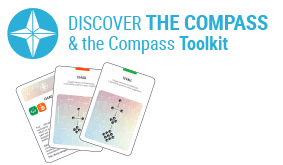Is your thinking pragmatic and systematic?
/Nowadays, development organizations are increasingly compelled to show that their programmes produce meaningful and lasting changes for their beneficiaries.
However, such “impacts” depend on many factors, such as behavioural change by those concerned or the relationships among them. This makes assessing development impacts problematic; yet many organizations strive to measure results that go far beyond the objectives of their programmes.
Outcome Mapping[1] offers not only a methodology[2] for monitoring and evaluation but also planning systems that enable organizations to document, learn from, and report on their achievements. It is designed to help with understanding an organization’s results, while recognizing that contributions by other players are essential to achieving the sustainable, large-scale improvements in human and ecological well-being toward which the organization is working. These contributions are planned and assessed in terms of their influence on the partners with whom the organization is working to effect change. In essence, development is accomplished by, and for, people. This is the central concept of Outcome Mapping.
Outcome Mapping focuses on behavioural change (outcomes are defined as changes in behaviour and relationships among those with whom a programme works directly), boundary partners (those individuals, groups and organizations with which the programme interacts directly); and contributions (to outcomes). It is divided into three stages and twelve steps. The first stage helps a programme establish consensus on macro-level changes. It also helps to organize and plan the strategies to be used. It helps answer four questions: Why? Who? What? and How? The second stage provides a framework for monitoring the programme’s actions and the boundary partners’ progress toward the outcomes. The third stage, evaluation planning, helps the programme identify evaluation priorities and devise an evaluation plan.
Outcome Mapping can be used as a planning or re-planning tool, at the beginning or in the middle of a project or programme. It can also be used for monitoring or as a framework for evaluation.
What do you think about the usefulness of Outcome Mapping? Can you see advantages in it for you? How can it enhance your strategic thinking?
Evaluation unit ITC-ILO







